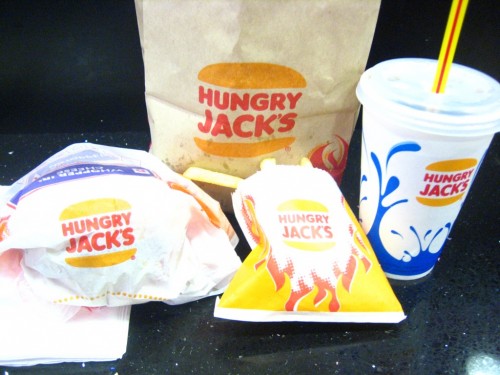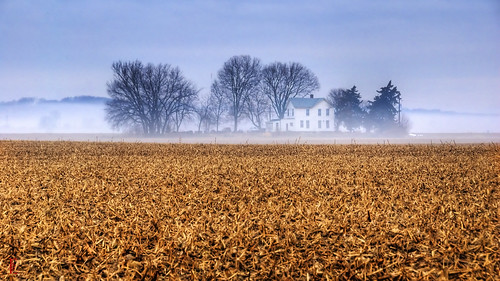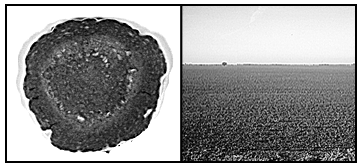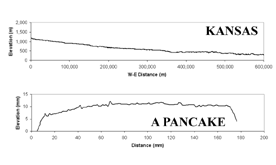The mysterious fall of the largest of the world's earliest
urban civilizations nearly 4,000 years ago in what is now India,
Pakistan, Nepal and Bangladesh now appears to have a key culprit —
ancient climate change, researchers say.
Ancient Egypt and
Mesopotamia may be the best known of the first great urban cultures, but
the largest was the Indus or Harappan civilization.
This culture
once extended over more than 386,000 square miles (1 million square
kilometers) across the plains of the Indus River from the Arabian Sea to
the Ganges, and at its peak may have accounted for 10 percent of the
world population.
The civilization developed about 5,200 years
ago, and slowly disintegrated between 3,900 and 3,000 years ago —
populations largely abandoned cities, migrating toward the east.
"Antiquity
knew about Egypt and Mesopotamia, but the Indus civilization, which was
bigger than these two, was completely forgotten until the 1920s," said
researcher Liviu Giosan, a geologist at Woods Hole Oceanographic
Institution in Massachusetts.
"There are still many things we don't know about them."
Nearly
a century ago, researchers began discovering numerous remains of
Harappan settlements along the Indus River and its tributaries, as well
as in a vast desert region at the border of India and Pakistan.
Evidence
was uncovered for sophisticated cities, sea links with Mesopotamia,
internal trade routes, arts and crafts, and as-yet undeciphered writing.
"They
had cities ordered into grids, with exquisite plumbing, which was not
encountered again until the Romans," Giosan said.
"They
seem to have been a more democratic society than Mesopotamia and Egypt —
no large structures were built for important personalities like kings
or pharaohs."
Like their contemporaries in Egypt and Mesopotamia,
the Harappans, who were named after one of their largest cities, lived
next to rivers.
"Until now, speculations abounded about the links
between this mysterious ancient culture and its life-giving mighty
rivers," Giosan said.
Now Giosan and his colleagues have
reconstructed the landscape of the plain and rivers where this
long-forgotten civilization developed. Their findings now shed light on
the enigmatic fate of this culture.
"Our research provides one of
the clearest examples of climate change leading to the collapse of an
entire civilization," Giosan said.
The researchers first analyzed satellite data of the landscape influenced by the Indus and neighboring rivers.
From
2003 to 2008, the researchers then collected samples of sediment from
the coast of the Arabian Sea into the fertile irrigated valleys of
Punjab and the northern Thar Desert to determine the origins and ages of
those sediments and develop a timeline of landscape changes.
"It
was challenging working in the desert — temperatures were over 110
degrees Fahrenheit all day long (43 degrees C)," Giosan recalled.
After
collecting data on geological history, "we could reexamine what we know
about settlements, what crops people were planting and when, and how
both agriculture and settlement patterns changed," said researcher
Dorian Fuller, an archaeologist with University College London.
"This
brought new insights into the process of eastward population shift, the
change towards many more small farming communities, and the decline of
cities during late Harappan times."
Some had suggested that the
Harappan heartland received its waters from a large glacier-fed
Himalayan river, thought by some to be the Sarasvati, a sacred river of
Hindu mythology. However, the researchers found that only rivers fed by
monsoon rains flowed through the region.
Previous studies suggest
the Ghaggar, an intermittent river that flows only during strong
monsoons, may best approximate the location of the Sarasvati.
Archaeological
evidence suggested the river, which dissipates into the desert along
the dried course of Hakra valley, was home to intensive settlement
during Harappan times.
"We think we settled a long controversy about the mythic Sarasvati River," Giosan said.
Initially, the monsoon-drenched rivers the researchers identified were prone to devastating floods.
Over
time, monsoons weakened, enabling agriculture and civilization to
flourish along flood-fed riverbanks for nearly 2,000 years.
"The
insolation — the solar energy received by the Earth from the sun —
varies in cycles, which can impact monsoons," Giosan said.
"In the
last 10,000 years, the Northern Hemisphere had the highest insolation
from 7,000 to 5,000 years ago, and since then insolation there
decreased.
All climate on Earth is driven by the sun, and so the monsoons were affected by the lower insolation, decreasing in force.
This meant less rain got into continental regions affected by monsoons over time."
Eventually, these monsoon-based rivers held too little water and dried, making them unfavorable for civilization.
"The
Harappans were an enterprising people taking advantage of a window of
opportunity — a kind of "Goldilocks civilization," Giosan said.
Eventually,
over the course of centuries, Harappans apparently fled along an escape
route to the east toward the Ganges basin, where monsoon rains remained
reliable.
"We can envision that this eastern shift involved a
change to more localized forms of economy — smaller communities
supported by local rain-fed farming and dwindling streams," Fuller said.
"This may have produced smaller surpluses, and would not have supported large cities, but would have been reliable."
This
change would have spelled disaster for the cities of the Indus, which
were built on the large surpluses seen during the earlier, wetter era.
The dispersal of the population to the east would have meant there was no longer a concentrated workforce to support urbanism.
"Cities
collapsed, but smaller agricultural communities were sustainable and
flourished," Fuller said. "Many of the urban arts, such as writing,
faded away, but agriculture continued and actually diversified."
These findings could help guide future archaeological explorations of the Indus civilization.
Researchers
can now better guess which settlements might have been more
significant, based on their relationships with rivers, Giosan said.
It
remains uncertain how monsoons will react to modern climate change. "If
we take the devastating floods that caused the largest humanitarian
disaster in Pakistan's history as a sign of increased monsoon activity,
than this doesn't bode well for the region," Giosan said.
"The region
has the largest irrigation scheme in the world, and all those dams and
channels would become obsolete in the face of the large floods an
increased monsoon would bring."






 A
man in Osceola County, Florida stands accused of robbing a Lowe’s
outlet. Unfortunately for him, the golf cart that he picked up at a
local nudist club was not up to the task of delivering him away from
the scene:
A
man in Osceola County, Florida stands accused of robbing a Lowe’s
outlet. Unfortunately for him, the golf cart that he picked up at a
local nudist club was not up to the task of delivering him away from
the scene:








 The Greek philosopher
The Greek philosopher 





 Arlington National Cemetery saw a great number of people visit to pay their
respects to service members killed in wartime on Memorial Day. But how much do you
know about the history of the cemetery? In 148 years, Arlington has
seen its share of scandals, including how it came to be where it is.
Arlington National Cemetery saw a great number of people visit to pay their
respects to service members killed in wartime on Memorial Day. But how much do you
know about the history of the cemetery? In 148 years, Arlington has
seen its share of scandals, including how it came to be where it is.





 Seeing
things in black and white can make you more judgmental, literally! A new
study shows that people who look at things with black-and-white background
are less likely to see moral dilemmas:
Seeing
things in black and white can make you more judgmental, literally! A new
study shows that people who look at things with black-and-white background
are less likely to see moral dilemmas: Germany
has low unemployment, solid economic growth, and Oktoberfest ... but why
are Germans so grumpy? Perhaps they've lost the "Joy DNA," according
to researchers:
Germany
has low unemployment, solid economic growth, and Oktoberfest ... but why
are Germans so grumpy? Perhaps they've lost the "Joy DNA," according
to researchers:











 Tanning a hide and making buckskin shorts is hard work, and making
fire by rubbing sticks together is frustrating and tedious, but
participants say the result is a profound sense of understanding the
materials that you work with. Firefly co-founder Natalie Bogwalker
explained, “Firefly is here to stave off the amnesia of modern
technocratic culture…When normal people come here they are really
inspired and feel that things are possible…"
Tanning a hide and making buckskin shorts is hard work, and making
fire by rubbing sticks together is frustrating and tedious, but
participants say the result is a profound sense of understanding the
materials that you work with. Firefly co-founder Natalie Bogwalker
explained, “Firefly is here to stave off the amnesia of modern
technocratic culture…When normal people come here they are really
inspired and feel that things are possible…"